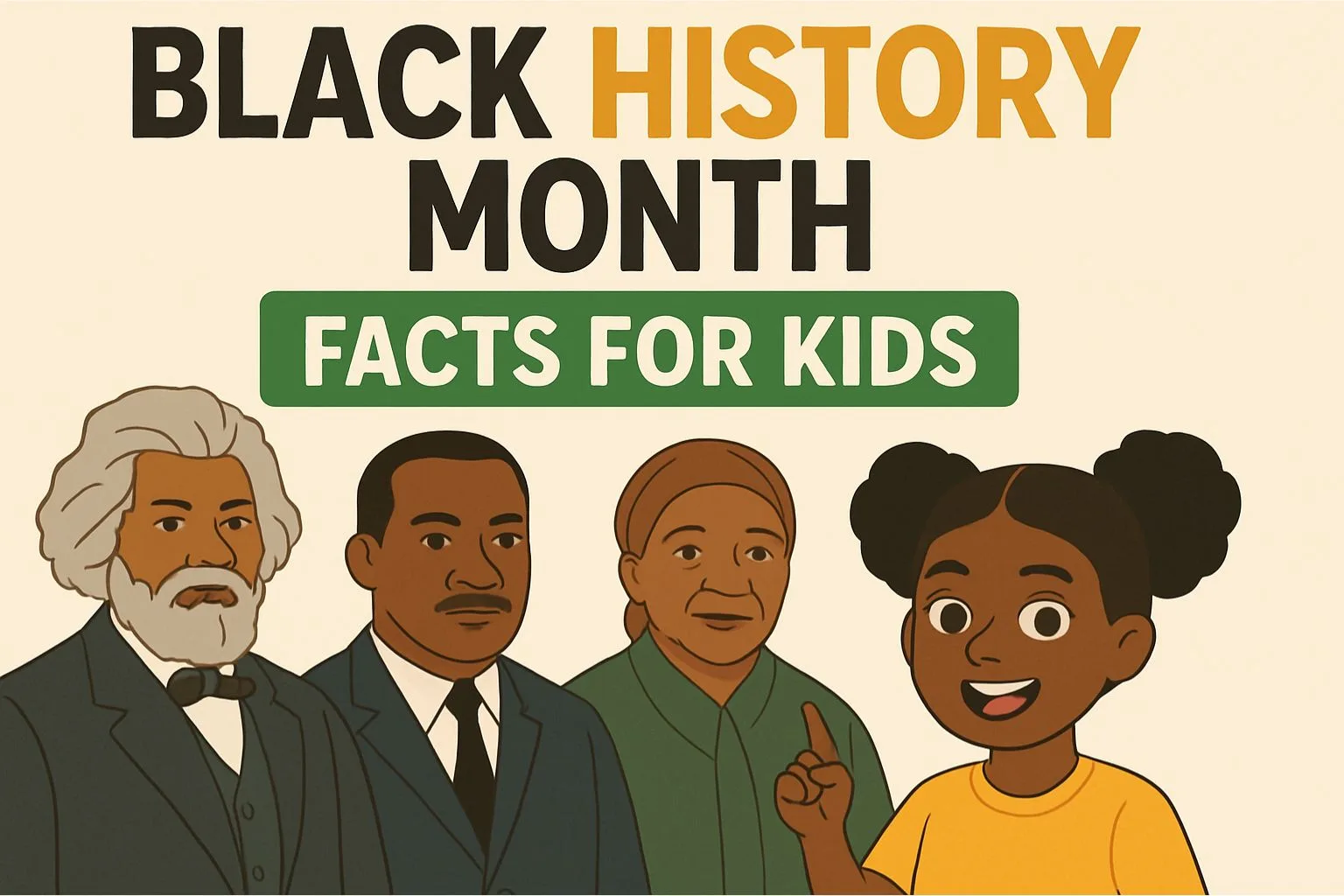Introduction – What Is Black History Month
Every year in February black history month is celebrated, it marks the achievements and contributions of African Americans to the United States. When Abraham Lincoln abolished slavery in 1863, the movement for recognition of African Americans began to spread. In 1926, the second week of february was celebrated as “Negro History Week”, later on the duration was increased to the entire month of February and was celebrated as “Black History Month”.
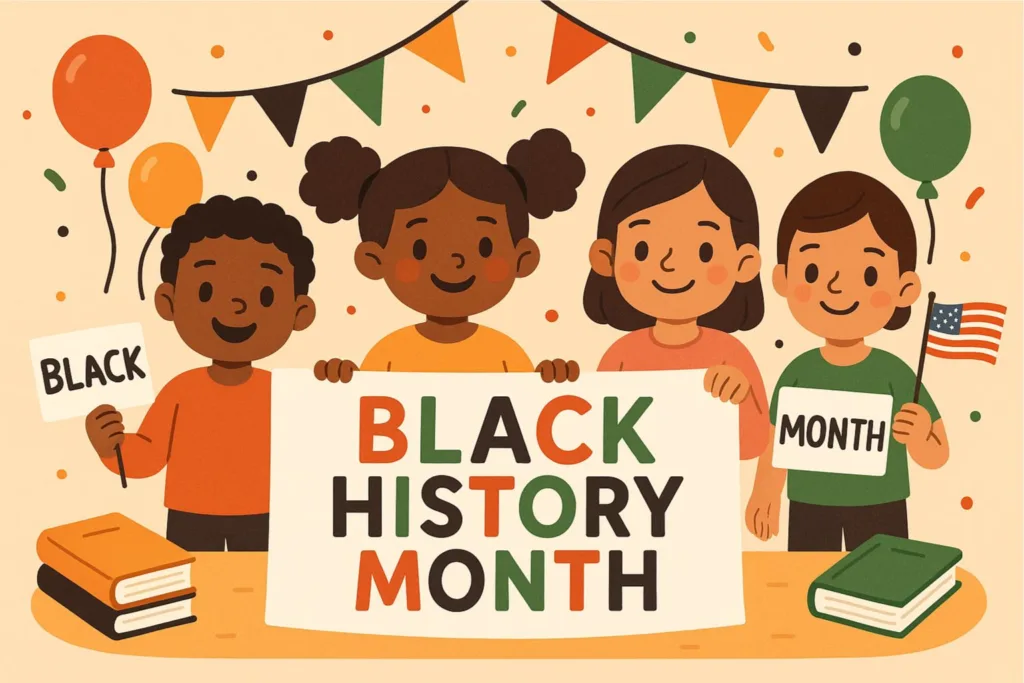
Who Started Black History Month?
- In 1915, American historian and author Carter G. Woodson co-founded the “Association for the Study of African American Life and History” (ASALH).
- By 1926 ASALH declared the second week of February as “Negro History Week”.
- In 1969 expansion of black history week turned to a month was proposed.
- Officially in 1976 Black history month was celebrated as an entire month, recognised by the U.S government.
Why Do We Celebrate It in February?
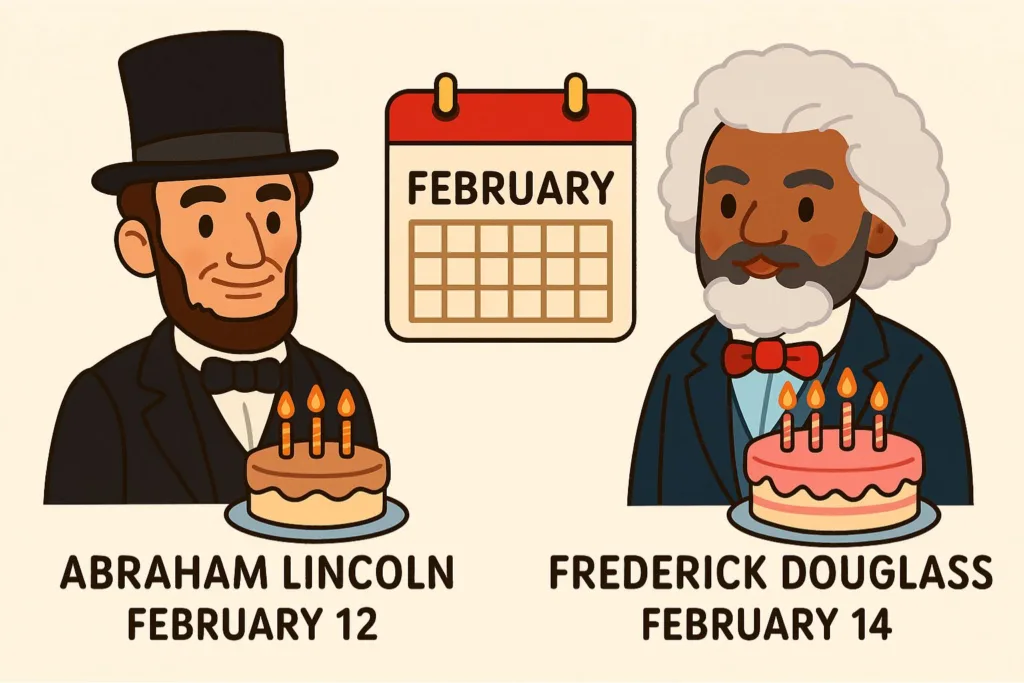
After the abolition of slavery Abraham Lincoln and Frederick Douglass became adored personalities by the black community. Black history month is celebrated in February as it marks Abraham Lincoln’s birth on February 12th and Fredrick Douglass’s birth on the 14th. These personalities are vital in the empowerment of the black community in the United States.
Inspiring Black Leaders Every Kid Should Know
There are many inspiring African American leaders, who have accomplished a lot for the community like:
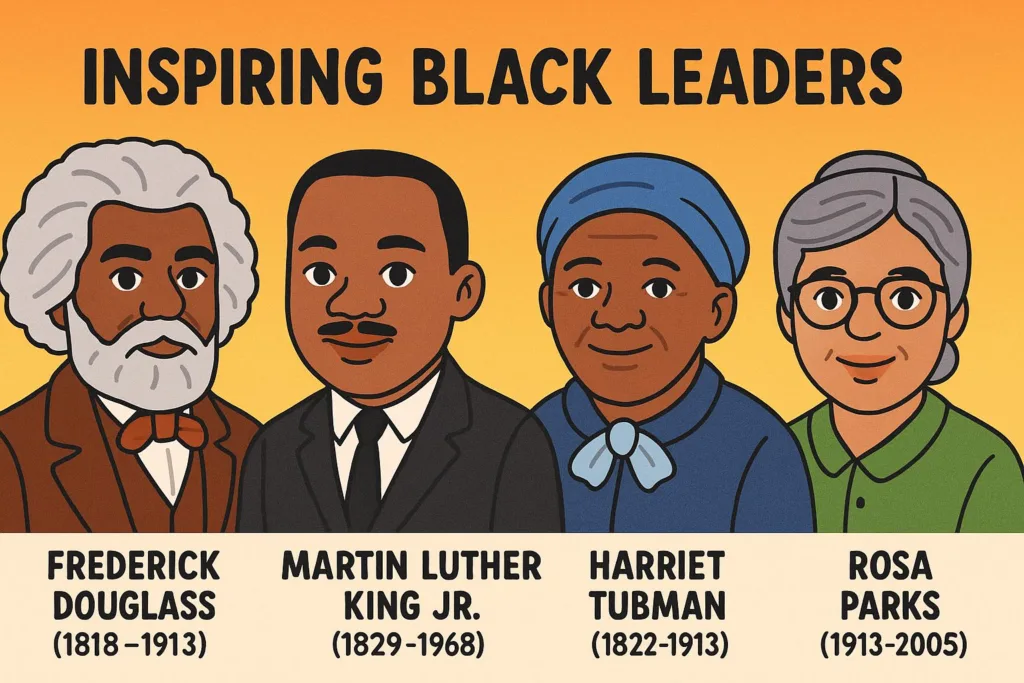
- Frederick Douglass (1818-1895):
Abolitionist, orator, writer, social reformer and leader of the movement of African American civil rights. Frederick escaped slavery and became a national leader of the abolitionist movement. Without his knowledge or consent, he was nominated as the first African American to be the vice president of the United States.
- Martin Luther King Jr. (1929-1968):
American minister, political philosopher and civil rights activist. He was known as the youngest man to receive the Nobel Peace Prize award for a non-violent campaign against racism. He was sadly assassinated in 1968.
- Harriet Tubman (1822-1913):
American abolitionist and social activist. Harriet escaped slavery at a young age and she made it her mission to rescue enslaved people. In a span of 10 years, she brought 300 slaves to freedom and she lived to be 91 years old.
- Rosa Park (1913-2005):
American civil rights activist Rosa Louise McCauley Park was known as the mother of the civil rights movement. She stood for racial equality and refused to give her seat to a white man in 1955. This led to her being arrested and fined $10; instead of paying the fine she went on to challenge segregation in Alabama.
How Can Kids Celebrate Black History Month?
Here’s how Children can celebrate and be part of black history month by:
- Reading educational picture books like:
- Hidden Figures by Winifred Conkling
- Mufaro’s Beautiful Daughters by John Steptoe
- Before She Was Harriet by Lesa Cline- Ransom
- Learning about leaders like Harriet Tubman and Rosa Park.
- Participating in class projects and skits that are educational and follow the theme of black history month.
- Watch movies and documentaries that celebrate black history, culture and characters.
Black History in Everyday Life
Black history is diverse and culturally rich, contributing to many aspects of music, sports, inventions and everyday life. Here are three notable contributors to our everyday lives:
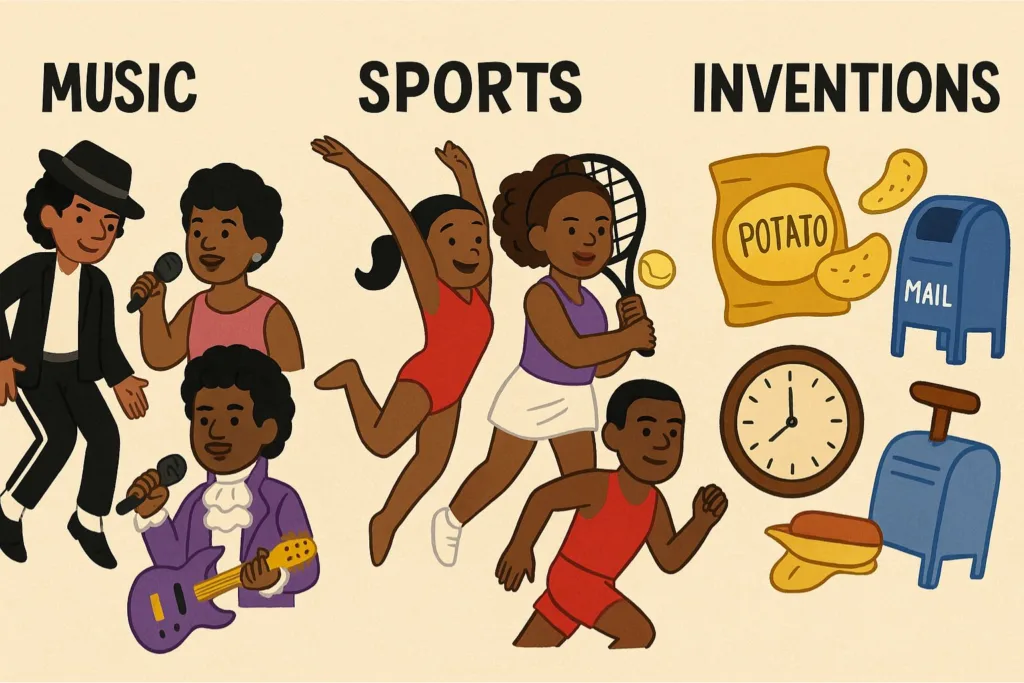
- Music:
- Prince (1958-2016): He is regarded as a very influential personality in the field of music with a range of 500-1000 released and unreleased songs.
- Michael Jackson (1958-2009): Regarded as the “King of Pop”, his music reduced racial barriers in the United States.
- Aretha Franklin (1942-2018): Regarded as the “Queen of Soul”, she has been named as the greatest singer of all time twice by the rolling stone magazine.
- Sports:
- Serena Williams (1981, 43 years old): American tennis player who ranked as the world’s number 1, in women’s singles for 319 weeks. She also finished as the year-end number 1, five times.
- Jesse Owens (1913-1980): American track and field athlete made history by winning four gold medals in the 1936 Olympic games.
- Simone Biles (1997, 27 years old): American gymnast has won 11 Olympic medals and 30 world championships. She is regarded as the most decorated gymnast in Olympic history.
- Inventions:
- George Crum (1824-1914): American chef invented the potato chip.
- Philip Downing (1857-1934): He was known as an inventor and created the operating street railway switches and the mailbox.
- Benjamin Banneker (1731-1806): American mathematician invented the first clock.
Conclusion – Why Black History Matters Today
Black history month began years ago but it is a reminder of the struggles that the African American community faced and continue to face. It is important to remember that skin tone should not cause us to act differently to someone else. Leaders like Martin Luther King Jr. teach us about the importance of non-violent movements and to stand up for what’s right.

Facts About Black History
- Did you know that Vermont became the first colony to ban slavery back in 1777?
- It is considered that the wealthiest person to ever live was the Black King Mansa Musa.
- 43.3 million African Americans lived in the United States in 2023.
- Black history month is celebrated in October throughout the UK and Ireland.
Frequently Asked Questions
What does segregation mean?
Segregation is defined as setting something or someone apart from others.
Who started the movement of Black History month?
The movement of black history was started by American historian and author Carter G. Woodson.
Why is black history month important?
Why is black history month important?
Black history month is important as it celebrates the heritage, culture and lives of African American citizens of the United States. The struggles that they endured and how they helped shape this nation.
Who was Rosa Park?
Rosa Louise McCauley Park was also known as the mother of the civil rights movement. She stood for racial equality and refused to give her seat to a white man in 1955. This led to her being arrested and fined $10, instead of paying the fine she went on to challenge segregation in Alabama.

